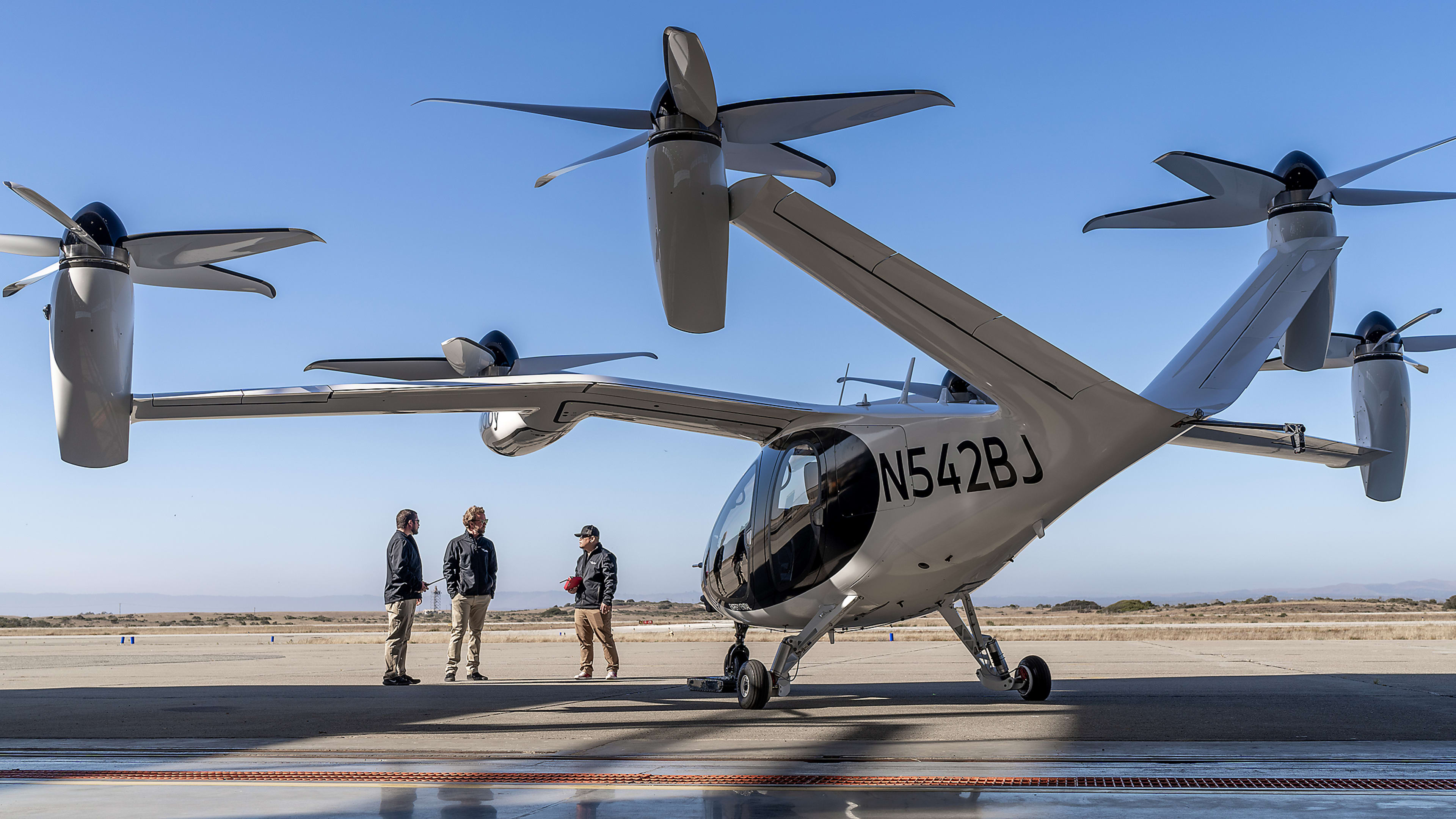Joby Aviation, the venture-backed California company that engineers electric vertical takeoff and landing aircraft (eVTOLs), may finally be nearing its inaugural flight.
Today, it’s unveiling a partnership with Delta Air Lines to bring Joby’s futuristic air taxis to New York and Los Angeles within the next few years. The specifics of the partnership, including the timeline for its rollout, are still up in the air, but the deal will pioneer eVTOLS on the consumer market, starting with the home-to-airport commute, an area where both companies see tremendous potential. The journey from downtown Manhattan to JFK airport in New York currently can take upwards of an hour or more, but Joby could cut that time to less than 10 minutes in transit, its founder JoeBen Bevirt shared in a news brief Monday.
Delta chief executive Ed Bastian noted that his company’s investment in Joby—which totals $60 million, equating to a roughly 2% stake in the eVTOL maker—differs from the bets other carriers have been placing on eVTOLs, in that Delta does not intend to purchase and operate the aircraft itself, but rather is enlisting Joby to build what it describes as a sort of VIP airport experience for Delta customers. He envisions a world in which travelers can book air taxis on the carrier’s website, then step outside their homes and walk down the street to a small neighborhood Joby hub, to be jetted away into the center of a major airport, perhaps eventually right onto the tarmac. The multi-year partnership with Joby will be mutually exclusive across the United States and the United Kingdom for five years following its commercial debut.
Delta isn’t the only airline giant eying eVTOLs: Last month, United Airlines spent $15 million to purchase 200 eVTOL aircraft from a Brazilian startup, and before that, it had placed a $1 billion order with California eVTOL maker Archer Aviation. Meanwhile, American Airlines has signed for aircraft from Bristol, England-headquartered Vertical Aerospace, expected to ship circa 2025.
The push for eVTOLs can be partly chalked up to a recent spotlighting of the aviation industry’s massive carbon footprint, emitting millions of tons of CO2 into the atmosphere each year, and its subsequent commitment to reach net-zero carbon by 2050 in order to fight climate change. As with other electric vehicles, eVTOLs are environmentally friendly with zero emissions.
Also driving the shift are other key innovations of eVTOLs, which are so named as they can take off and land vertically—like helicopters—without requiring the long runways and real estate of traditional airplanes. But unlike helicopters, they are quite nearly silent, muffling the roar of a typically deafening engine down to a soft whooshing noise. Such characteristics make eVTOLs viable to launch from both dense urban cores, where space is tightly rationed, as well as residential suburbs, where maintaining peace and quiet is critical.
But despite the promise of eVTOLs on paper—and the buzz within the flight industry—there has yet to be an aircraft manufactured into existence that has won full approval from the Federal Aviation Administration. In a news briefing, Bevirt and Bastian remain vague when describing specific timelines, implying that eVTOLs will likely not unfold their wings for at least a few years.
Both are optimistic about the demand for air taxis to city airports, but declined to offer details on pricing, citing only that they are committed to “affordable” value. In the past, helicopter taxi startup Blade has offered five-minute private rides to and from New York’s JFK airport for $195 each way.
According to Joby, it has flown more than 1,000 test flights demonstrating range, speed, and altitude, and is the first eVTOL company to be granted the fourth stage (of a total five stages) of approval from the FAA. It recently received an air carrier certification.
Recognize your brand’s excellence by applying to this year’s Brands That Matter Awards before the early-rate deadline, May 3.
